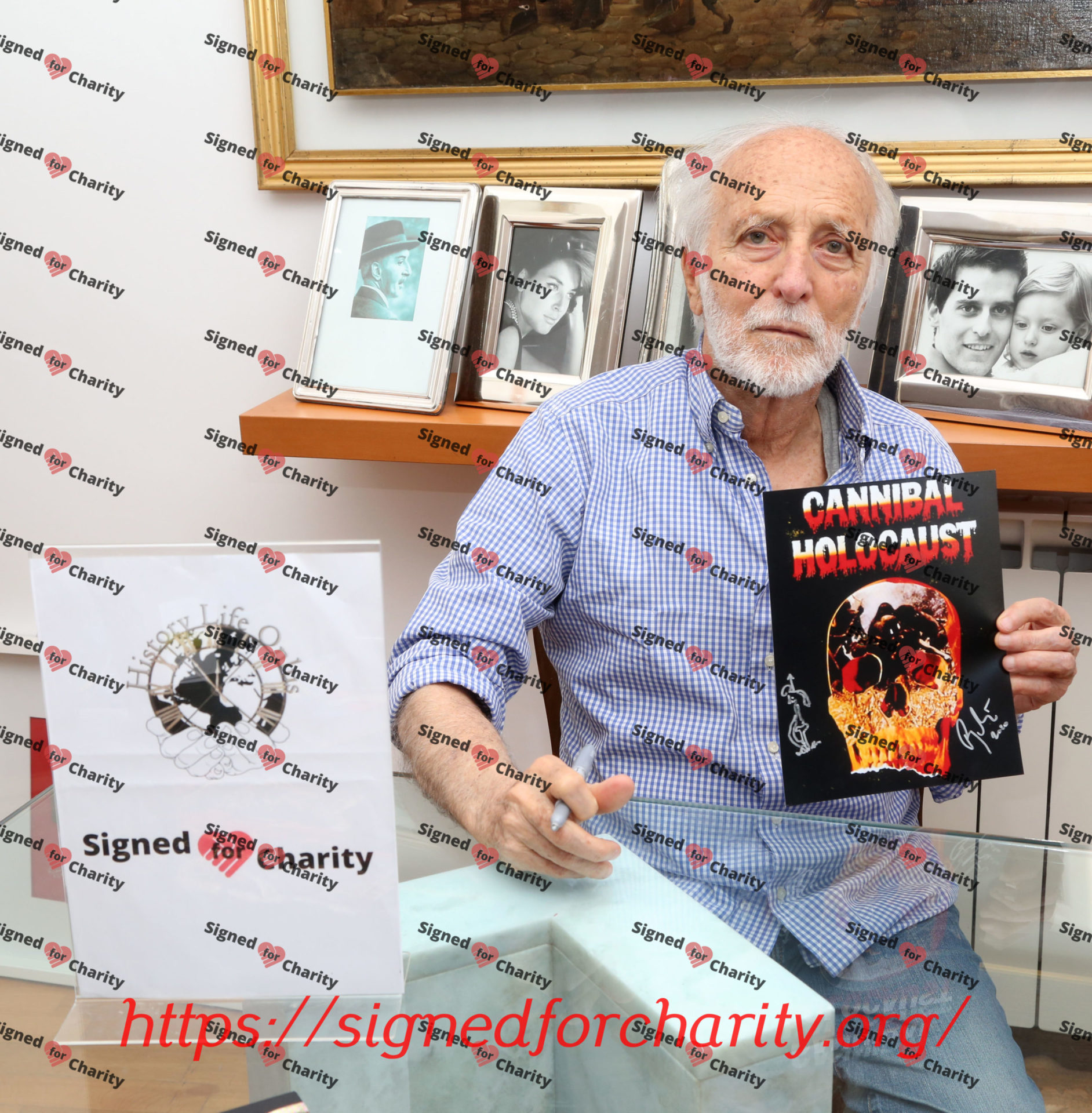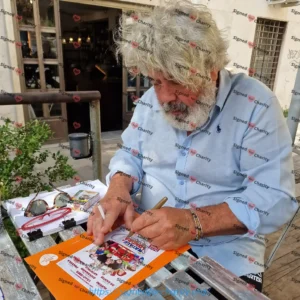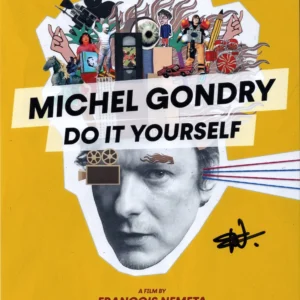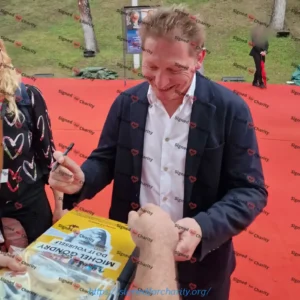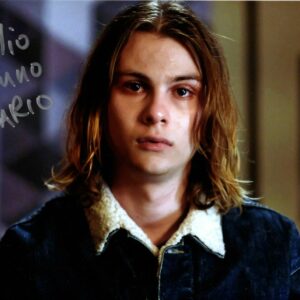Description
Early life and career
Deodato was born in Potenza, Basilicata, and moved to Rome with his family as a child. He went to Denmark and started as a musician playing piano and conducting a small orchestra at 7 years old. Once back to Italy, he quit music after his private teacher sent him away for playing by ear. Deodato grew up on a farm and at eighteen grew up in the neighborhood where Rome’s major film studios are located. Through a friendship with the son of Rossellini, it was there that he learned how to direct under Roberto Rossellini and Sergio Corbucci; he helped to make Corbucci’s The Slave and Django as an assistant director. Later on in the 1960s, he directed some comedy, musical, and thriller films, before leaving cinema to do TV commercials. In 1976 he returned to the big screen with his ultra-violent police flick Live Like a Cop, Die Like a Man. In 1977 he directed a jungle adventure called Last Cannibal World (also known as Jungle Holocaust) starring British actress Me Me Lai with which he ‘rebooted’ the cannibal film / mondo genre started years earlier by Italian director Umberto Lenzi.
Success and controversies
Late in 1979 he returned to the cannibal subgenre with the incredibly controversial Cannibal Holocaust. The film was shot in the Amazon Rainforest for a budget of about $100,000, and starred Robert Kerman, Francesca Ciardi, and Carl Gabriel Yorke. The film is a mockumentary about a group of filmmakers who go into the Amazon Rainforest and subsequently stage scenes of extreme brutality for a Mondo-style documentary. During production, many cast and crew members protested the use of real animal killing in the film, including Kerman, who walked off the set. Deodato created massive controversy in Italy and all over the world following the release of Cannibal Holocaust, which was wrongly claimed by some to be a snuff film due to the overly realistic gore effects. Deodato was arrested on suspicion of murder, and was subsequently forced to reveal the secrets behind the film’s special effects and to parade the lead actors before an Italian court in order to prove that they were still alive. Deodato also received condemnation, still ongoing, for the use of real animal torture in his films. Despite the numerous criticisms, Cannibal Holocaust is considered a classic of the horror genre and innovative in its found footage plot structure. Deodato’s film license was temporarily revoked and he would not get it back until three years later, which then allowed him to release his 1980 thriller The House on the Edge of the Park, which was the most censored of the ‘video nasties’ in the United Kingdom for its graphic violence. His Cut and Run is a jungle adventure thriller, containing nudity, extreme violence and the appearance of Michael Berryman as a crazed, machete-wielding jungle man.
Late career
In the 1980s, he made some other slasher/horror films, including Body Count, Phantom of Death and Dial Help. In the 1990s he turned to TV movies and dramas with some success. In 2007, he made a cameo appearance in Hostel: Part II in the role of a cannibal. Deodato made about two dozen films and TV series, his films covering many different genres, including many action films, a western, a barbarian film and even a family film called Mom I Can Do It. He was also helping to develop a cannibal-themed video game called Borneo: A Jungle Nightmare.
Personal life and death
Deodato was married to actress Silvia Dionisio from 1971 to 1979. He had a son from the marriage. His partner was Micaela Rocco. In 2019, the filmmaker was honored with a documentary about his life and career called Deodato Holocaust. Directed by Brazilian filmmaker Felipe M. Guerra, it was released in May of that year at the Fantaspoa Film Festival, in Brazil, with the presence of Ruggero. The documentary consists of a series of interviews that Guerra made with the Italian director, edited with images from Deodato’s movies and personal photos. In 2021, Deodato Holocaust was released on Blu-Ray in Sweden and Germany. Deodato died on 29 December 2022, at the age of 83.

